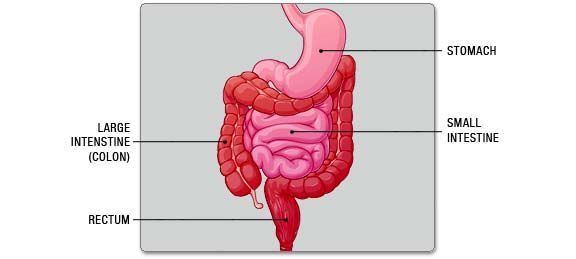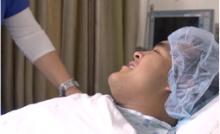Even if you don’t have visible bumps on the skin, you may still be suffering from hemorrhoids. Unlike the external type, internal hemorrhoids form inside the lining of the rectum, and people with this type of hemorrhoids may not immediately realize they have them. If you think you may be suffering from internal hemorrhoids, feel free to contact La Peer Health Systems’ Hemorrhoid Center of Excellence for a consultation with our experienced GI and colorectal specialists.
Internal Hemorrhoids Symptoms and Causes
Internal hemorrhoids form when the vessels of the anal cushions swell, causing the surrounding tissue to increase in size and extend into the anal canal. Although this type of hemorrhoid is often painless, sufferers may notice blood in their bowel movements or on the toilet tissue. People with internal hemorrhoids may also experience an itching or throbbing sensation around the anus.

In certain cases, internal hemorrhoids can become prolapsed, meaning that they protrude from the anus. When left untreated, this condition can be incredibly painful. If you’re experiencing prolapsed hemorrhoids, don’t hesitate to seek treatment.
Request your consultation today.
Call us at 888.742.2032 to schedule an appointment or:
Treatment Options for Internal Hemorrhoids
Internal hemorrhoids may be difficult to treat with traditional creams, ointments or pads. If you’re experiencing persistent internal hemorrhoids or prolapsed hemorrhoids that protrude from the anal canal, you may need medical attention to resolve the condition.
The GI and colorectal specialists at the Hemorrhoid Center of Excellence offer a variety of procedures for treating internal hemorrhoids. A popular treatment is sclerotherapy, in which a chemical solution known as a sclerosant is injected into the tissue around the hemorrhoid. For more severe internal hemorrhoids, doctors may need to perform a hemorrhoidectomy to remove the hemorrhoid permanently.
One of the most common methods for treating internal hemorrhoids, rubber band ligation involves the placement of a band around the hemorrhoid to cut off the circulation. Once blood circulation is cut off from the hemorrhoid, it falls off and passes painlessly through the system. The procedure is painless and can be performed without anesthesia in the doctor’s office.
Frequently Asked Questions
Q: How are internal hemorrhoids diagnosed?
A: To diagnose internal hemorrhoids, our surgeons may need to insert a slender tube called an anoscope into the rectum. The tool has a light at the end, allowing doctors to see inside the rectum.
Q: Are internal hemorrhoids painful?
A: Internal hemorrhoids develop far inside the rectum, where there are fewer pain-sensing nerves. For this reason, internal hemorrhoids are typically less painful than the external variety.
Q: Will I need a colonoscopy to diagnose internal hemorrhoids?
A: No, but our Los Angeles surgeons could perform a colonoscopy to rule out any more serious conditions.
Q: When should I seek medical attention for internal hemorrhoids?
A: You should see a doctor for persistent internal hemorrhoids or prolapsed hemorrhoids that protrude from the anal canal.
Q: How can I prevent internal hemorrhoids in the future?
A: Eating healthy, exercising regularly, and drinking plenty of fluids can help reduce your risk of developing both internal and external hemorrhoids.
Contact Us to Schedule an Appointment
If you think you may be suffering from internal hemorrhoids, feel free to contact the board-certified colorectal and gastrointestinal doctors at the Hemorrhoid Center of Excellence for a consultation. We can be reached at (888) 742-2032 or by filling out the contact form on this website.
Next, read about external hemorrhoids.










